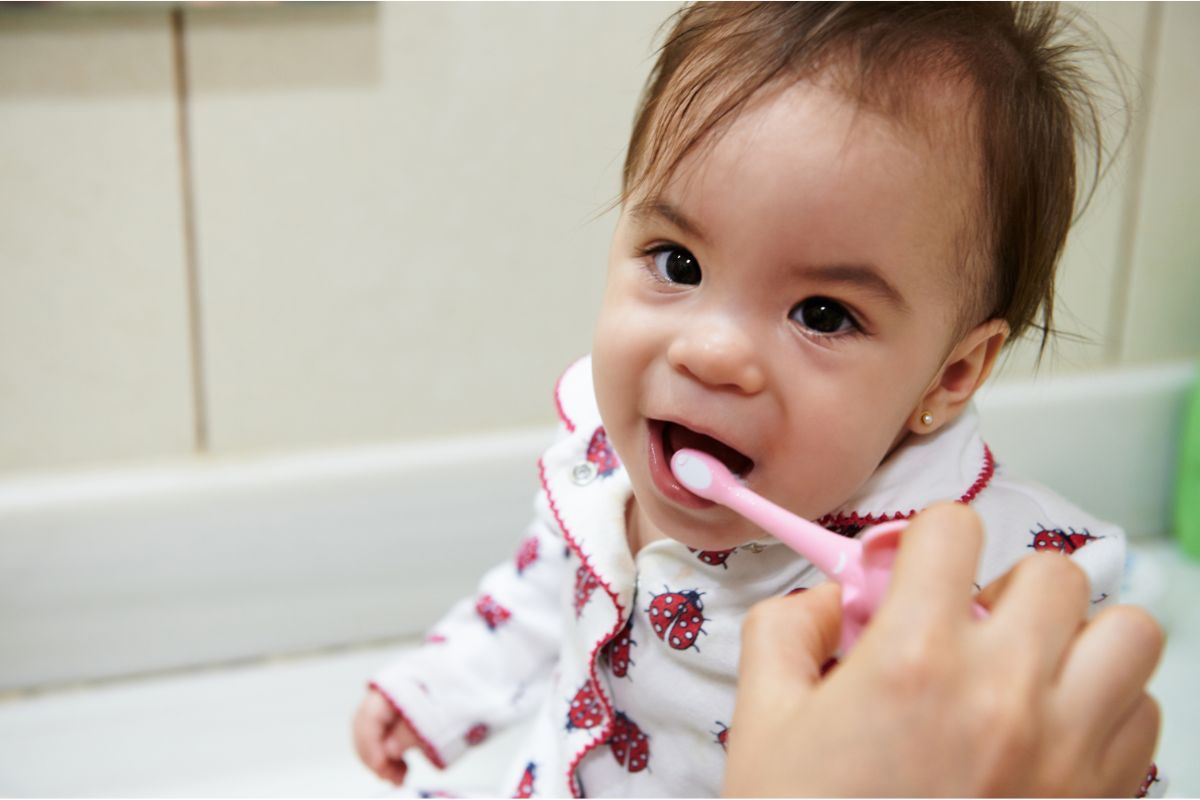Health insurance has to be immediately dealt with when your baby is born. In fact, it is likely that this has already been on your mind due to needing prenatal care before the baby is born. Medical care is a huge priority, however, do babies need dental insurance?
You shouldn’t overlook the dental care of your newborn!
It might seem difficult to get your head around as babies are not born with any teeth – why pay for something that babies don’t even have?!
However, dental care is a big chunk of a child’s wellbeing and it should not be ignored! Prepare yourself before they need their first appointment.
Table of contents
Importance of Oral Care
It is easy to push away concerns about your child’s teeth because their baby teeth will eventually fall out and be replaced by adult teeth.
You may think that you don’t need to take good care of the primary teeth; since they will be replaced at the end. But this is not true!
Poor adult hygiene can lead to tooth decay in the primary teeth which will cause cavities. This is painful and will affect a child’s wellbeing as it can become painful to chew and talk.
Cavities in children are very common and they shouldn’t be overlooked.
It is also essential to have dental care for your child because they are very likely to have a dental emergency. As your child is quite unsteady on their feet for a while, it is likely that they may knock their teeth or chip them.
This can affect the health of the child’s permanent teeth when they come through and so should be properly treated.
When to Take your Child for a Checkup?
A child should attend a dental appointment before their first birthday. You could also measure the need to take them to the dentist by taking them six months after their first tooth comes through.
Your dentist will take good care of your child by ensuring that the growth is growing correctly and checking on the health of your baby’s gums. They will also look for cavities.
Encourage Good Habits
It is a good idea to start off how you mean to continue when it comes to your baby’s dental care. You are setting up good habits and should set your child up on the path of regular visits.
Oral hygiene is very closely linked to overall health and so it is very important to take care of your teeth from a young age to ensure your overall health doesn’t suffer.

Insurance VS Pay as you Go
It is a very commonly asked question whether there is any point in purchasing insurance. You may be wondering if paying as you go dental care may end up costing you less in the long run.
The answer to this is different for everyone. Let’s go into some more detail.
There are a few different ways that you can get dental insurance and all of these options should be considered.
Parents can often get dental insurance for their babies through their employers insurance. However, if you are not covered by this then you will have to take out the insurance on your own.
There are three main ways to get dental insurance for your children. These include:
Embedded plans: these plans include coverage for your dental care along with all other benefits for the same price.
Stand alone plans: these plans are purchased by themselves and they provide just dental.
They are separate from a health plan and can sometimes be bought from a stand-alone insurance company who deal only with dental.
Bundled plans: these plans offer different types of insurance on the same plan, but they are added separately to the policy. For instance, you may choose both a dental and a visual plan to add to your bundle.
All three of these plans may differ in price, what they cover and which dentists can be seen.
What to Look for in a Dental Plan?
What a dental plan covers can vary in a big way across plans. Before choosing a dental plan, you should consider what age your child is at.
After that, there may be some other things that you would want it to cover that you should consider.
You should ensure that there are a lot of different dentists available on your plan in case of an emergency. Ensure you consider all of the extra costs that could occur and make your decision!
Choosing your Child’s Dentist
It’s important that you start taking your child to the dentist at a young age to prevent any dental problems down the line.
Choose a dentist who you trust and who your child feels comfortable with. It is important to choose a dentist with experience treating children, too.
Dental visits should not be tainted by fear or anxiety, as you can find a dentist who will ensure that you and your child are at ease.
When you have chosen a dentist, ask them about the costs. They will advise you on whether it is better to pay for your child’s dental through insurance or on a pay as you go basis.
However, it is a really good idea to ensure that you take your child for regular checkups, and having these already covered by insurance may be better to encourage you to take your child.
Final Thoughts
So, now we have looked in detail at dental insurance for babies and its importance. While it is not the only option, it is a great one because it allows you to set up good habits and prevent any problems with your child’s teeth.
Oral care is essential and your child should have their first dental appointment before the age of one!
Frequently Asked Questions
The first dental visit is recommended by 12 months of age, or within 6 months of the first tooth coming in. The first visit often lasts 30 to 45 minutes. Depending on your child’s age, the visit may include a full exam of the teeth, jaws, bite, gums, and oral tissues to check growth and development.
Tips to Prepare Kids for Their First Visit to the Dentist
1. Choose the Right Pediatric Dentist.
2. Talk Positively About What Will Happen at the Appointment.
3. Roll Play With Your Child.
4. Read a Few Books About Going to the Dentist.
5. Bring a Friend.
6. Schedule the Appointment for the Right Time.
Permanent teeth grow inside the jaw under the baby teeth. If your child loses a baby tooth too early from decay and lack of care or trauma, the permanent tooth that comes in may be misaligned, making it hard for the rest of the teeth in that area to line up properly; this could cause bite problems.
